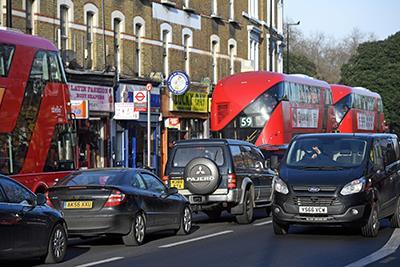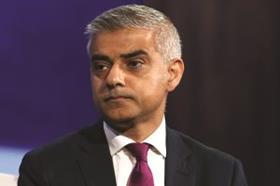
Trade associations have warned that London’s ULEZ will severely disadvantage, or even bankrupt, operators that work in the city when it begins in 2019.
Earlier this week Sadiq Khan announced that the zone will take effect on 8 April 2019, instead of the original 2020 start date, and launched a public consultation into the plans.
It will see HGVs in the congestion zone charged £100 a day to enter. The area will expand to cover everything within the South and North Circular roads the following year, with the £12.50 van charge expanding to the area in 2021.
Natalie Chapman, head of policy for London and the South East at the FTA said the ULEZ will “severely disadvantage small businesses working in the capital’s centre”.
She said the impact of the new legislation will be particularly hard on van users. “By 2019 there will only be two and a half years’ worth of compliant vehicles in the fleet – and no second hand compliant vehicles available for purchase,” she said.
The FTA suggested a sunset clause for businesses, like the one offered to residents in the affected areas, would ease some of the pressure.

People living in the ULEZ will have until April 2022 to comply with the regulations, and Chapman said granting businesses this period would allow them “greater time to comply with the change required without the need for unnecessary and potentially crippling additional charges for new vehicles”.
The association voiced its approval of the diesel scrappage scheme previously put forward by the mayor, and said it would use the current consultation into the ULEZ “for more consideration to be given to those affected by the introduction of these new measures”.
RHA chief executive Richard Burnett also voiced concerns about the cost of the ULEZ to London operators.
He said: “The majority of hauliers entering the capital on a regular basis are already using trucks that meet the Euro 6 standard – but many are not.
"They will be facing an additional £24,000 a year in fines.
"Many will be forced out of business while others will have no alternative but to pass the additional cost on to their customers.
“The knock on effect will be an increase in prices for consumers, including the millions of tourists that come to London every year.”














